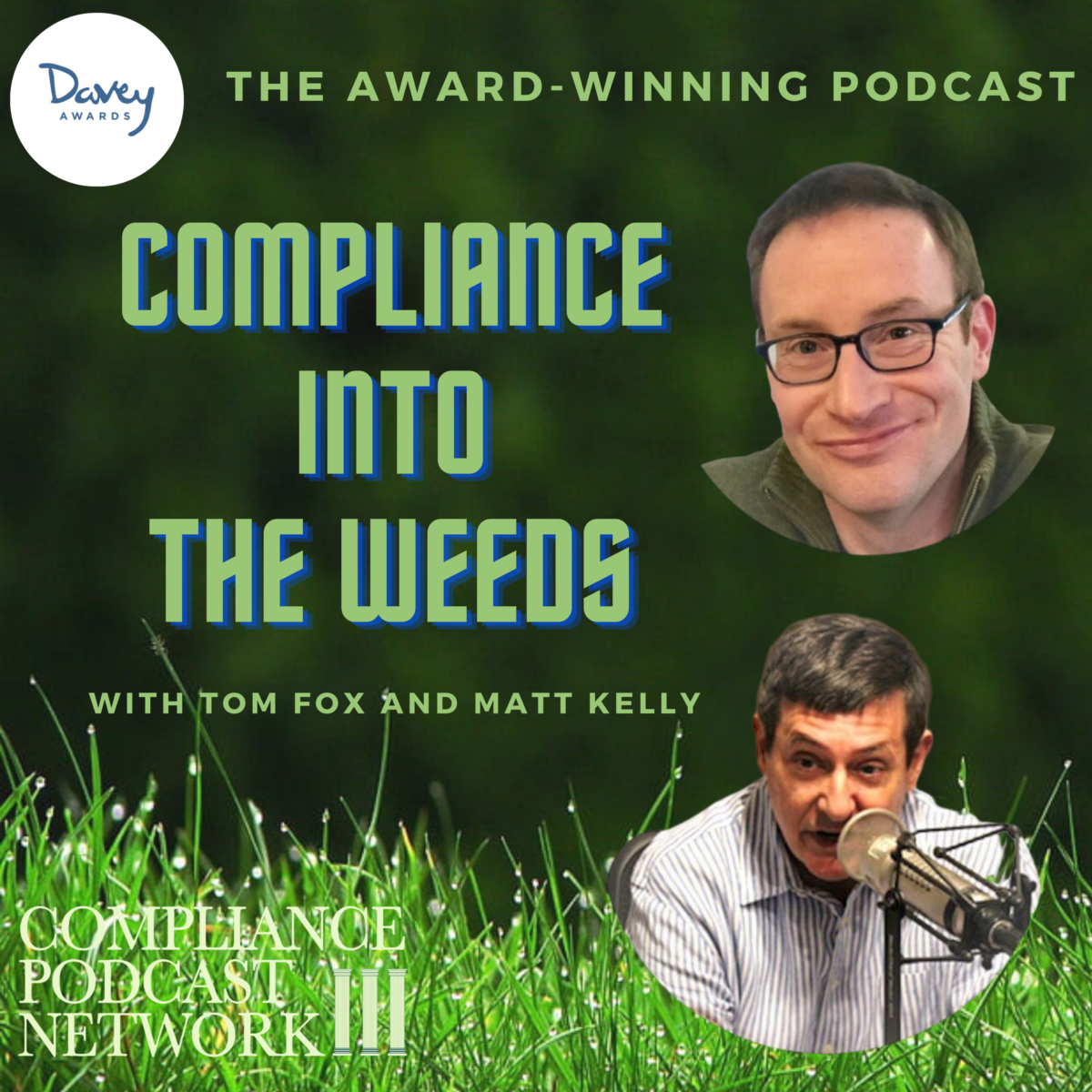Last week, the Department of Justice (DOJ) announced a resolution of a Foreign Corrupt Practices Act (FCPA) enforcement action involving Telefónica Venezolana, the Venezuelan subsidiary of Telefónica S.A. (Telefónica) involving significant compliance failures. Telefónica agreed to a $85.2 million penalty and Deferred Prosecution Agreement (DPA). Tom Fox will review the Top 10 Lessons for Compliance Professionals in this blog post.
- Understanding the FCPA Risks in High-Risk Jurisdictions
Telefónica confirms the compliance risks inherent in high-risk jurisdictions where government intervention and currency restrictions are common. If you had any question that Venezuela was not high risk, this matter confirms it once again. Currency access is tightly controlled, creating opportunities for corruption in currency auctions that companies might exploit to obtain preferential treatment. Telefónica’s bribery of Venezuelan officials for U.S. dollar access exemplifies how companies in such markets might resort to unethical tactics to stay competitive.
Lesson Learned. High-Risk. High-Risk. High-Risk. Businesses operating in high-risk regions must be vigilant in identifying regulatory challenges that could prompt employees or agents to seek shortcuts, including bribery or fraud. Implementing strong local compliance measures, training employees on anti-bribery practices, and emphasizing adherence to legal processes—no matter the regulatory hurdles—are essential to maintaining compliance integrity.
- The Role of Third Parties in Concealing Corrupt Practices
In the scheme, the Company indirectly engaged suppliers to pay bribes, concealing these payments as inflated prices on equipment purchases. Third-party risks remain one of the most challenging aspects of compliance, as intermediaries are often used to circumvent direct involvement in corrupt activities, thereby masking unethical practices from internal oversight.
Lesson Learned. For the past 25 years, corrupt third parties have had the highest risk in FCPA compliance. This makes comprehensive third-party due diligence as crucial as any other part of your compliance program. Every relationship with suppliers, contractors, or intermediaries should undergo rigorous vetting, including checks for conflicts of interest, bribery risks, and financial irregularities. Companies should employ contract clauses requiring third parties to comply with anti-corruption laws and establish transparent compliance reporting and monitoring mechanisms. However, the key is managing the relationship after the contract is signed.
- Internal Controls and Transaction Monitoring: The First Line of Defense
The bribery scheme involved purchasing equipment from two suppliers at inflated prices and funneling bribes through manipulated invoices. A robust internal control system might have flagged these irregularities, potentially preventing or detecting the misconduct earlier. The case illustrates the importance of scrutinizing financial transactions, especially those that deviate from standard pricing practices.
Lesson Learned. This case demonstrates that strengthening internal controls is vital, particularly in financial transaction monitoring. Implementing controls such as approval hierarchies, independent review of non-standard transactions, and regular financial audits by third parties can reduce opportunities for corrupt practices. Compliance professionals should also integrate forensic accounting expertise into their monitoring and investigative functions to analyze suspicious transactions and identify potential compliance breaches.
- A Proactive Approach to Third-Party Payment Oversight
Telefónica used inflated equipment purchase prices to conceal bribes, showing how intermediaries and indirect payments can mask corrupt practices. The company has since improved its compliance framework, including enhanced oversight of third-party payments through proprietary software.
Lesson Learned. For Compliance Professions, the lesson is that companies must develop and enforce rigorous third-party payment controls. Companies can detect unusual payment patterns that may signal compliance risks by implementing technology solutions to monitor payment flows. Finally, compliance teams must collaborate with finance departments to establish alerts for atypical payment activities, thus fostering cross-departmental vigilance against corruption.
- Building a Robust and Independent Compliance Function
In response to its FCPA violations, Telefónica strengthened its compliance function, appointing a Chief Compliance Officer (CCO) with direct access to the Audit Committee and investing in compliance resources. This demonstrates the need for compliance independence and empowerment to address corporate misconduct effectively.
Lesson Learned. For a compliance program to be effective, it must be both empowered and independent. The CCO should report directly to the Board of Directors or the Audit Committee to ensure unfiltered communication of compliance concerns directly to the company’s top. Companies should also continually assess their compliance structures and allocate sufficient resources to compliance functions, ensuring the team has the tools and authority to address risks proactively.
- The Importance of Timely and Transparent Cooperation in Government Investigations
Telefónica’s delayed cooperation with the DOJ affected the investigation’s efficiency and ultimately impacted the company’s cooperation credit. It also no doubt frustrated the DOJ lawyers handling the matter. While the Company later assisted DOJ investigators, this case reinforces that delays in providing relevant information can result in increased penalties or reduced credit in FCPA investigations.
Lesson Learned. When under investigation, timely, transparent cooperation with government authorities is essential. Delaying the disclosure of relevant information hinders the investigation and may also increase penalties or other sanctions. Companies should have protocols for efficiently gathering and disclosing information to authorities, especially when compliance breaches are suspected.
- Remedial Actions as a Key to Reducing Penalties
Telefónica implemented significant remedial measures to address its compliance failings, including employee terminations, third-party vetting improvements, and transaction review process overhauls. These actions likely contributed to the DOJ’s decision to reduce the penalty by 20%, reflecting the importance of remedial actions in mitigating penalties.
Lesson Learned. Remediation is critical when responding to compliance failures. Swift and decisive action—such as disciplining or terminating employees involved in misconduct, overhauling control processes, and enhancing compliance programs—demonstrates a genuine commitment to addressing and preventing future issues. These actions can positively influence regulators’ decisions, potentially reducing fines or penalties.
- Lessons on the Impact of Prior Compliance Failures
Telefónica’s parent company, Telefónica S.A., has a history of compliance failures, including a prior FCPA enforcement action involving a subsidiary, Telefónica Brasil. The enforcement action involving the Venezuelan subsidiary shows how previous infractions can impact a company’s current settlement terms, as regulators consider a company’s past compliance record when determining penalties.
Lesson Learned. Companies should be mindful that a history of compliance breaches can affect regulatory leniency in future cases. Ensuring that corrective actions are implemented following any past compliance issues—and documented as part of a continuous improvement process—is critical for maintaining regulatory goodwill and potentially reducing penalties in subsequent cases.
- Global Cooperation in Compliance Investigations
In Telefónica’s case, the DOJ coordinated with international authorities in Panama, Switzerland, and Luxembourg to gather evidence and move the investigation forward. The international cooperation underscores the global nature of anti-corruption enforcement and the heightened risk of detection and prosecution across jurisdictions.
Lesson Learned. Compliance officers should understand that global regulatory cooperation makes it harder for companies to evade accountability. With enforcement agencies increasingly sharing information and resources, companies must adopt a global approach to compliance, ensuring their practices align with international regulations and anti-bribery standards.
The underlying facts of this matter occurred in 2012-2013. This demonstrates the lengthy (some say forever) tail of FCPA enforcement. Writing in Law360, Dorothy Martin noted, “But prosecutors allege in 2014, Telefónica Venezolana participated in a corrupt currency auction that allowed the telecom giant to exchange its local currency for more than $110 million in U.S. dollars. According to court documents, during the auction, Telefónica allegedly won more than 65% of the $172 million that the local government awarded to 16 telecom companies.”
Lesson Learned. The lesson for compliance professionals is that actions from a subsidiary from many years can come back and bite you in your collective corporate backside. It was clear that Telefónica did not self-disclose, nor did it initially cooperate with the DOJ. These actions and positions taken by the Company may have been because the distance of time between the illegal actions and investigation may have made the Company perform an investigation and even dig out documents. This involves data and access to data by the compliance function.
The Telefónica Venezolana FCPA enforcement is a stark reminder of the consequences of FCPA violations, particularly in high-risk markets where bribery and corruption risks are prevalent. This case highlights the critical need for strong internal controls, rigorous third-party oversight, and a proactive approach to compliance culture. By learning from these lessons, compliance professionals can better equip their companies to navigate complex regulatory environments and avoid the costly consequences of corruption.





